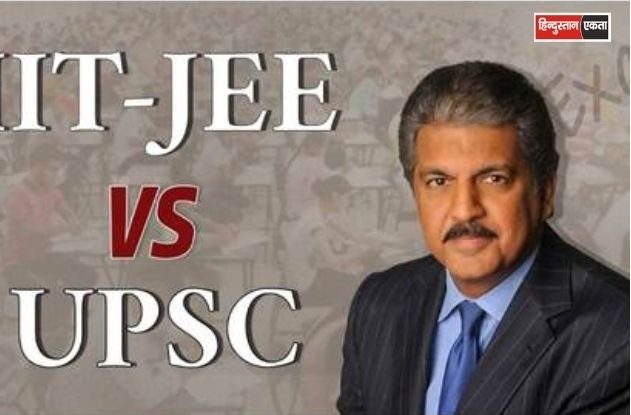Choosing between IIT vs UPSC is one of the most common debates among ambitious students in India. Both paths lead to prestigious careers, but they differ in purpose, preparation, and lifestyle. While IIT opens doors to innovation and global opportunities, UPSC offers a chance to serve the nation and hold administrative power. In this article, we’ll explore both options in simple and clear terms to help you decide which one suits your goals best.
Understanding IIT and UPSC
What Is IIT?
IIT stands for the Indian Institutes of Technology, a group of top engineering and technology institutes in India. Admission to IITs is through the JEE Advanced exam, which is known for its tough competition. Students who clear IIT exams often go on to become engineers, entrepreneurs, researchers, or leaders in the tech industry.
IITs are not just about engineering; they also focus on innovation, science, and problem-solving. Graduates from IIT often find high-paying jobs in top companies in India and abroad.
What Is UPSC?
UPSC, or the Union Public Service Commission, conducts India’s most prestigious civil services exam. Through this exam, candidates can become IAS, IPS, IFS, or IRS officers. The UPSC exam is one of the toughest competitive exams in the country.
A career through UPSC offers power, responsibility, and respect. Civil servants play an important role in implementing government policies, making key decisions, and improving the lives of people.
IIT vs UPSC: Key Differences
When comparing IIT vs UPSC, it’s important to look at what each path offers in terms of goals, preparation, salary, and lifestyle.
Career Goal
The goal of IIT is to create skilled professionals in science, engineering, and technology. UPSC, on the other hand, focuses on building administrators and policymakers.
If you love innovation, problem-solving, and technology, IIT is a perfect fit. But if your dream is to work for the public and make a difference in people’s lives, UPSC might be the right choice.
Exam Preparation
Both IIT and UPSC demand dedication, discipline, and smart strategy. IIT aspirants start preparing from school, focusing on subjects like Physics, Chemistry, and Mathematics.
UPSC aspirants, however, prepare after graduation, studying subjects like History, Geography, Polity, Economics, and Current Affairs. The preparation style is completely different.
Salary and Career Growth
In IIT vs UPSC, the salary structure and career growth are also major factors. An IIT graduate can get high-paying jobs in tech companies like Google, Microsoft, or Amazon. The salary often depends on skills and experience, and growth is rapid in the private sector.
A UPSC officer’s salary starts modestly but comes with perks, government housing, and job security. Over time, IAS and IPS officers reach powerful positions that influence the nation’s progress.
Work-Life Balance
IIT professionals usually have flexible jobs, especially in the private sector, though workload can be high in tech firms. UPSC officers have a more disciplined lifestyle with fixed duties, transfers, and responsibilities.
If you prefer a corporate environment, IIT might suit you better. But if you enjoy challenges and leadership roles, UPSC will give you great satisfaction.
IIT vs UPSC: Which Is More Difficult?
The difficulty level of IIT vs UPSC depends on your interests and preparation style. IIT exams are tough because they test deep conceptual understanding in science and math. UPSC is challenging because it covers a wide range of subjects and requires analytical thinking, current affairs awareness, and writing skills.
Statistically, UPSC has a lower success rate than IIT. However, success in either depends on passion, consistency, and discipline.
The Prestige of IIT vs UPSC
Both IIT and UPSC are highly respected in India. IIT alumni are known worldwide for their technical excellence and contributions to industries like AI, robotics, and research. UPSC officers, on the other hand, are admired for their leadership and decision-making that directly affect the nation.
Prestige is subjective. For some, working at Google or creating a startup after IIT is a dream come true. For others, being called an IAS officer and leading government departments is the ultimate goal.
Career Opportunities After IIT vs UPSC
After completing IIT, students can pursue:
-
Engineering and technology jobs
-
Research or higher education abroad
-
Entrepreneurship and startups
-
Government or public sector roles
After clearing UPSC, candidates can join:
-
Indian Administrative Service (IAS)
-
Indian Police Service (IPS)
-
Indian Foreign Service (IFS)
-
Other central and state government roles
Both paths offer stable and impactful careers. It all depends on what kind of contribution you want to make — innovation or administration.
Which One Should You Choose?
When deciding between IIT vs UPSC, think about your interests, long-term goals, and what motivates you. If you enjoy logic, creativity, and science, IIT will give you opportunities to grow in the tech world. If leadership, governance, and service attract you more, UPSC is the right path.
Both require years of hard work, but both can lead to success and satisfaction.
Conclusion
The IIT vs UPSC debate isn’t about which one is better—it’s about which one fits you better. IIT builds the foundation of technology and innovation, while UPSC shapes the nation’s leadership and governance. Whether you choose to be a top engineer or a civil servant, your dedication and passion will define your success.
At Hindustan Ekta, we bring you detailed comparisons, guides, and educational insights to help students make the right career decisions. Explore more about IIT vs UPSC and stay informed about India’s educational and competitive exam landscape.
Categorized in:
Tagged in:
Country